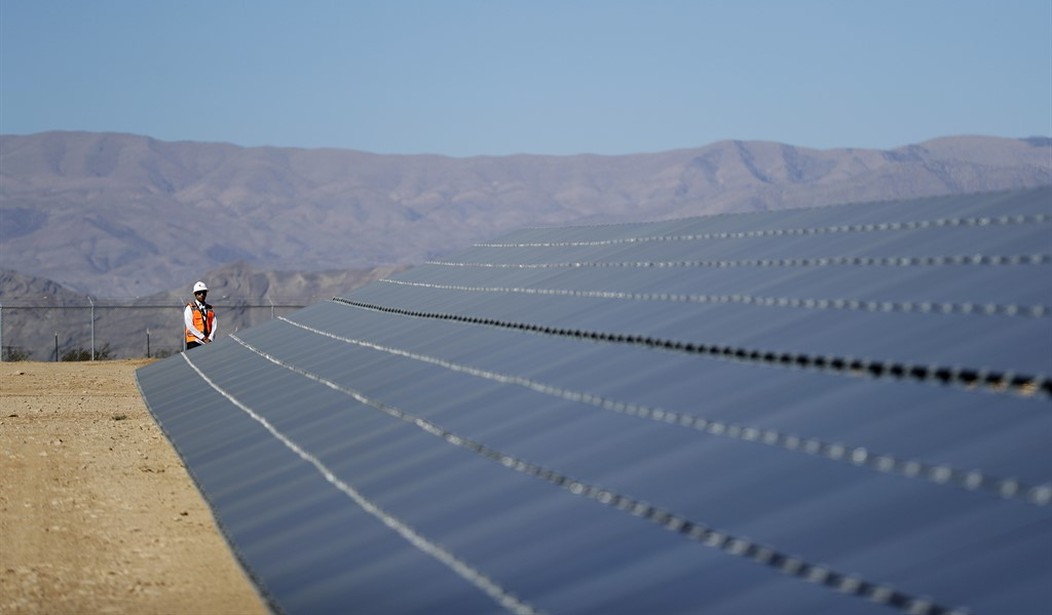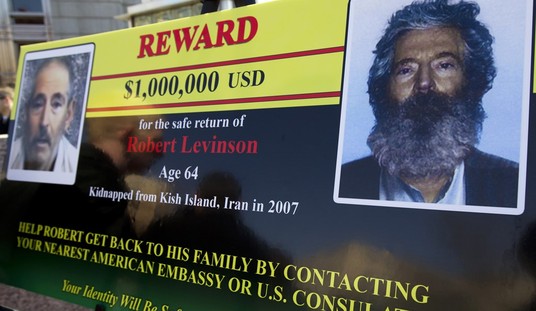Much of the problem with so-called "green" energy schemes is that they just don't return value for investment. Solar and wind power, in particular, as I'm continually pointing out, can be useful in niche applications, like people living off-grid, but they just don't scale up to grid-level power. Add to that the problems with them being intermittent, low-density, expensive, and unreliable, and you have something that just doesn't live up to the climate scold hype.
That's why they require subsidies to even exist, often in the form of federal loan guarantees or just outright payments. On their own, they are not and, barring some unforeseen technological breakthrough, never will be economically viable.
That's why, when President Trump resumed office in January and his Department of Energy started yanking these subsidies, a lot of these boondoggles started folding like the proverbial cheap suit. One such is a solar-power company, Sunnova, which was already in Chapter 11 bankruptcy even with the subsidies.
We've talked about Sunnova's woes before.
Read More: Green Energy Fail: Solar Power Company Sunnova Files for Bankruptcy
Now, from Master Resource's Robert Bradley Jr. comes a great autopsy of this debacle.
Mr. Bradley begins:
MasterResource has chronicled the rise and fall of the large, government-enabled rooftop solar company, Sunnova Energy International, Inc. Led by the toothy Enron-ex John Berger (who made millions of dollars at the expense of just about everyone else, including taxpayers), Sunnova is yet another case study of business failure under political capitalism (versus free-market capitalism).
Previous posts have been:
- Solar Bust: PosiGen Joins SunPower, Sunnova, Mosaic Solar, September 8, 2025
- Sunnova’s Enronish Ending, July 16, 2025
- Sunnova Declares Bankruptcy June 10, 2025
- Sunnova EVP’s Exit: Self-adulation Within a Taxpayer Bubble June 4, 2025
- Sunnova Hype pre-Bankruptcy May 8, 2025
- Sunnova’s Net Zero for Stockholders (last ESG report of a ‘second-hander’ company) May 7, 2025
- John Berger: “Lifetime Achievement Award” for Sustainable Energy Future April 1, 2025
- Sunnova Going Solyndra? (Enron-ex John Berger owes taxpayers a bundle) February 12, 2025
- Sunnova’s Rooftop Solar: Selling a Bad Product Requires …. April 25, 2019
Look at that; six years of takedowns of a green energy boondoggle, from 2019 to date.
Sunnova's bankruptcy plan was approved by the Bankruptcy Court for the Southern District of Texas last week. This is just the latest in a litany of failures of these kinds of operations, as far back as the Obama administration - remember Solyndra? It seems Sunnova's assets and business operations will be sold to Solaris Assets, which, with this purchase, becomes on of the country's largest commercial solar panel companies.
So, what will happen to Solaris? As of this writing, it appears that Solaris is not receiving, directly, any federal loan guarantees or direct subsidies. However, these installations are still subject to consumer subsidies. But most of those will disappear or at least be reduced at the end of 2025.
Another autopsy of Sunnova revealed some more interesting points:
As the loan guarantee was being awarded, the Better Business Bureau (BBB) had flagged the company for a “pattern of complaints” about its sales practices and customer service. The Better Business Bureau last accredited the company in 2019, and despite Sunnova’s claim that it was “working closely” to reacquire accreditation, the bureau noted that “…the BBB is not able to work with Sunnova Energy Corporation at this time to have accreditation reinstated as the business currently does not meet the BBB’s Standards for Accreditation.”
Sunnova also had problems in Puerto Rico, where the island’s Energy Bureau required it to change business practices after getting complaints from customers about its contracts and billing procedures. Customers alleged that their signatures had been transplanted onto restrictive contracts, and that Sunnova salespersons made false representations as to the value of the product. One family reportedly moved out of the country but was not allowed to remove the solar panels from their roof, forcing them to continue paying upkeep or face legal action. Even worse, the only recourse Sunnova allowed customers was an in-house arbitration process, sometimes taking place thousands of miles away in Texas – a requirement that the Energy Bureau determined was illegal.
This was a company that was not only economically unviable but was also conducting outright shady business practices.
So what does all this bode for the remaining green energy companies? Nothing good. Oh, the remaining solar-panel outfits may be on the up and up, business-practice-wise, but they are still at least in part dependent on subsidies and loan guarantees.
If the management of these solar and wind companies is going to make the case that their products are economically viable, then the Trump administration should necessarily make them put their money where their mouths are. Yank all the subsidies and loan guarantees, for the industry, for consumers, everyone. Make them stand on their own. These technologies are a long, long way from being viable. The constant drumbeat of failures, of bankruptcies, of loss, all speak very plainly to that.
Something that can't continue won't continue. It's time the Trump administration let Stein's Law work its magic on the green energy sector. If they survive, fine.














